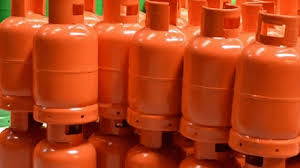The Group Chief Executive Officer of the Nigerian National Petroleum Company Limited (NNPC Ltd), Mr. Bayo Ojulari, has attributed the recent increase in cooking gas prices across the country to temporary disruptions in loading and distribution caused by the industrial strike of the Petroleum and Natural Gas Senior Staff Association of Nigeria (PENGASSAN).
Ojulari made this known while speaking to journalists at the State House in Abuja on Sunday, shortly after a meeting with President Bola Ahmed Tinubu. He explained that the strike action, which affected operations at critical depots and terminals, led to delays in supply for a few days, resulting in what he described as an “artificial” price surge.
“The increase you saw was relatively artificial because for the period of the strike, movements and loading were delayed by about two to three days,” Ojulari said. “And because of that, you saw that impact on prices. As things return to normal, it will take some time for distribution to be fully restored.”
The NNPC boss assured Nigerians that the situation was already improving following the resolution of the labour dispute and that gas prices were expected to stabilise soon. “My expectation is that now that things are back to normal, prices should return to what they were before the strike,” he added.
The temporary rise in prices occurred after PENGASSAN embarked on a nationwide industrial action over the dismissal of Nigerian workers at the Dangote Refinery. The strike, which disrupted the operations of several petroleum facilities, was called off on October 1 following the intervention of the Federal Government.
Ojulari said that while the industrial action was ongoing, the inability of tankers and loading terminals to distribute Liquefied Petroleum Gas (LPG), commonly known as cooking gas, created a short-term scarcity that triggered a price increase in the domestic market.
He noted that some retailers and middlemen took advantage of the supply gap to inflate prices for consumers. “As you know, in Nigeria, people take opportunity. With that delay, some of the people that had existing resources and reserves had to put up the price,” he said, criticising opportunistic traders who exploited the temporary situation for profit.
According to him, the NNPC and other major suppliers have now resumed full operations, and loading activities are returning to normal levels. He added that the Dangote Group’s agreement to redeploy affected workers and the reopening of key supply terminals have eased distribution bottlenecks.
Ojulari maintained that the NNPC remains committed to ensuring stable and affordable domestic energy supply. He also urged marketers to act responsibly and avoid creating unnecessary panic among consumers. “There is enough product in-country,” he assured, “and as the system balances out, Nigerians should see prices move downwards again.”
In recent weeks, consumers across major cities such as Lagos, Abuja, and Port Harcourt have complained about rising cooking gas prices, with the average cost of a 12.5kg cylinder increasing from about ₦14,000 to over ₦17,000. Analysts linked the rise to the temporary suspension of loading activities during the PENGASSAN strike and the ripple effect on transportation costs.
Energy experts say the situation highlights the sensitivity of Nigeria’s gas market to supply chain disruptions. They also noted that the ongoing efforts by the NNPC, the Nigerian Midstream and Downstream Petroleum Regulatory Authority (NMDPRA), and private players like the Dangote Refinery could help strengthen domestic gas availability and reduce dependence on imported supply.
Ojulari reaffirmed the NNPC’s commitment to collaborating with private sector partners to improve LPG production and distribution infrastructure nationwide. He said the company is working closely with regulators and marketers to maintain adequate supply levels while exploring new investments in gas processing and storage facilities.
With the resumption of operations after the strike and renewed coordination among stakeholders, the NNPC chief expressed optimism that cooking gas prices would normalise in the coming weeks.
